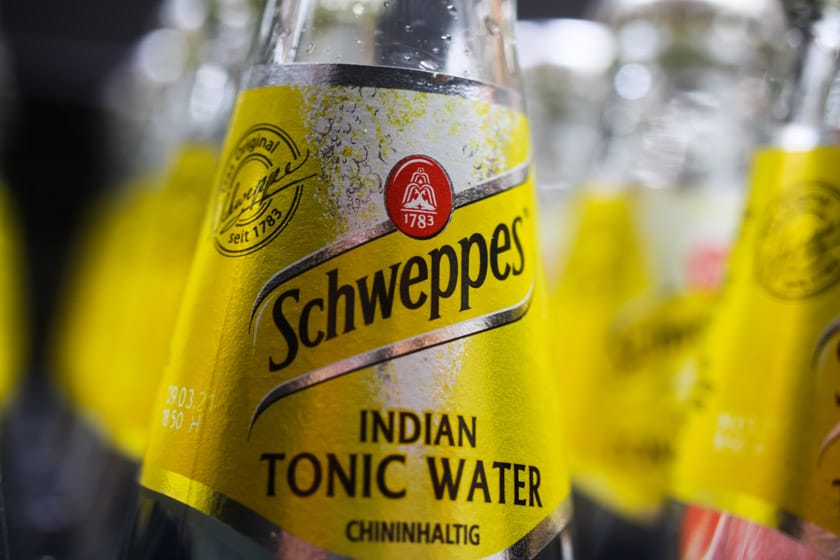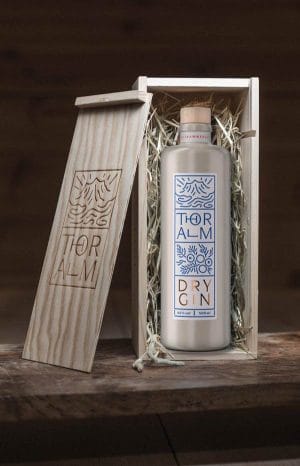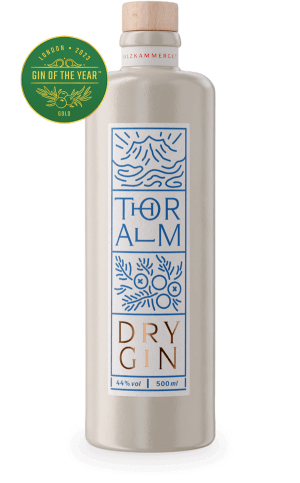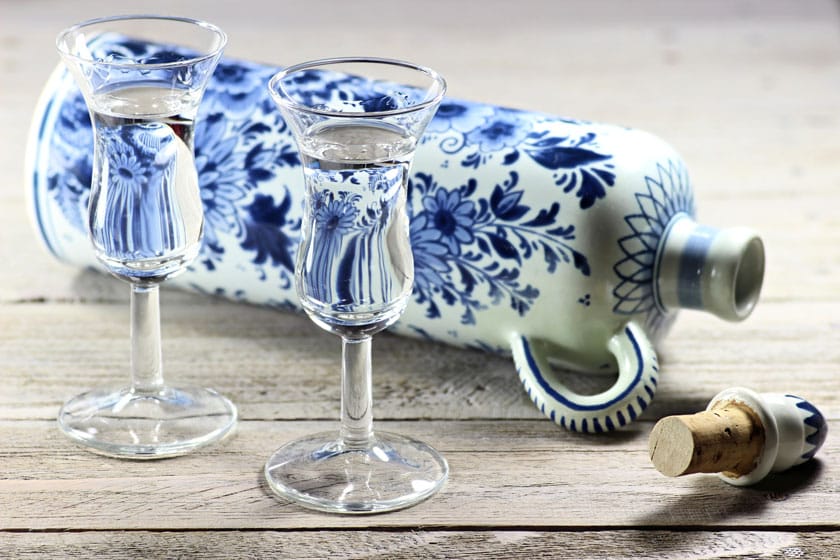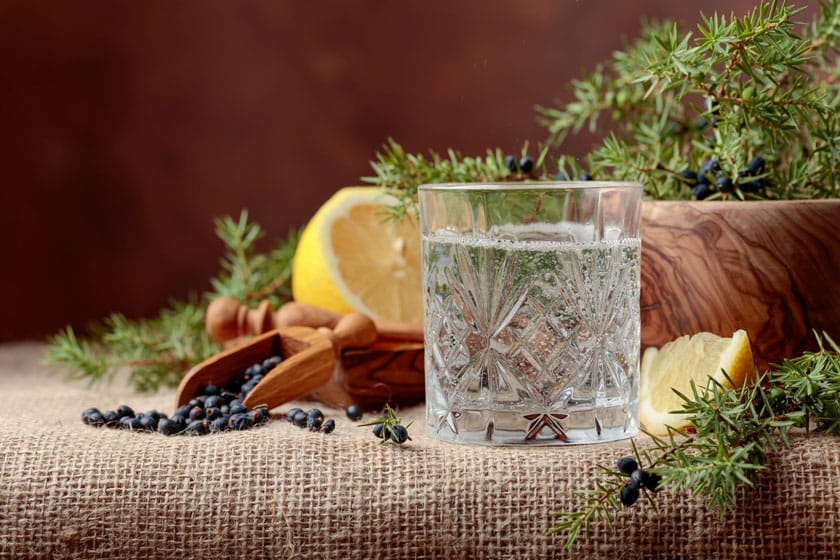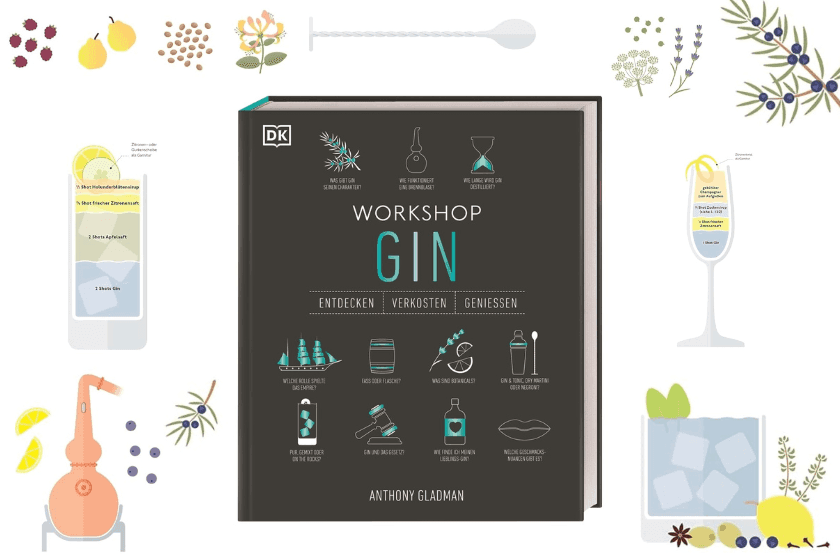Gin and tonic - hardly any other drink combines tradition and trend as stylishly as this classic cocktail. The secret of its refreshing taste? Tonic water. In this article we explain what exactly tonic water is, how it is made and what role it plays in the world of cocktails. We also give you tips on how to choose the ideal tonic water for your next gin and tonic.
What is tonic water?
Tonic water is more than just a simple mixed drink. It is a carbonated soft drink that is best known for its characteristic bitter taste, which comes from the ingredient quinine. Tonic water was originally developed as a malaria prophylactic, but today it is popular mainly for its unique taste.
The History of Tonic Water
The history of tonic water is closely linked to colonial history. In the 19th century, the British used quinine in India to prevent malaria. To make the bitter taste more pleasant, they mixed the quinine with sugar and water, and this is how the first tonic water was created.
production of tonic water
Making tonic water is a fascinating process. First, quinine is extracted, usually from the bark of the cinchona tree. This extract is then mixed with sugar or another sweetener, as well as water and carbon dioxide. Modern manufacturers often add natural flavors as well to create a greater variety of flavors.
Different types of tonic water
Today, there are numerous variants of tonic water on the market that vary in sweetness, bitterness and flavor profile to suit the different tastes and preferences of gin lovers. Each of these tonic water variants offers a unique way to customize your gin and tonic and tailor it to your personal preferences.
Classic Tonic Water
Classic tonic water is the most traditional form and is characterized by a balanced mix of sweetness and bitterness. It usually contains a moderate amount of quinine, which gives it its characteristic slightly bitter taste without being too dominant. The sweetness is often achieved by adding sugar or a similar sweetener, which serves to balance the bitterness of the quinine. This tonic water is particularly popular for the traditional gin and tonic, as it highlights the natural flavors of the gin without competing with them. It is perfect for those who appreciate the pure and unadulterated harmony of gin and tonic.
Indian Tonic Water
Indian Tonic Water is a more intense variety, often containing a higher percentage of quinine, which makes it more bitter. This variety was originally developed for the British market, in response to demand for a tonic water that would retain its tangy bitterness even in the variable conditions of colonial India. Indian Tonic Water is ideal for those who prefer a stronger, more distinctive taste. It complements robust and spicy gins particularly well, which can cut through the pronounced bitterness, and makes for a refreshing drink that offers depth and complexity of flavour.
Aromatic Tonic
A more recent development in the world of tonic water, Aromatic Tonic is infused with a variety of herbs and spices that provide a complex and layered flavor profile. Commonly used additions include lavender, rosemary, citrus and various spices that add aromatic depth to the tonic. This style of tonic is particularly suited to aromatic or botanically rich gins, where the additional flavors of the tonic complement and enhance the subtle notes of the gin. Aromatic Tonic offers a great way to enhance classic gin and tonics and discover a new dimension of flavor.
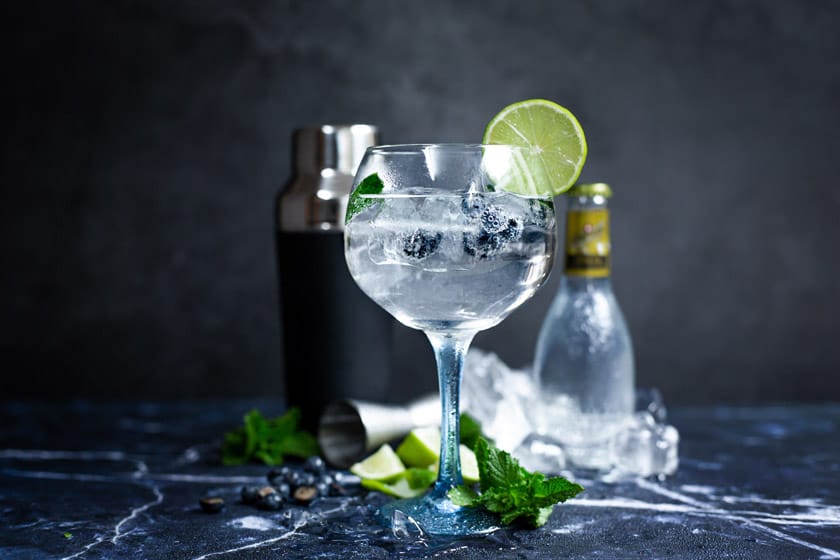
How to choose the perfect tonic water for your gin?
Choosing the perfect tonic water for your gin and tonic is an art in itself that can make the difference between a good cocktail and an exceptional one. If you're wondering how to choose the ideal tonic water for your gin, consider the following key aspects:
flavor profile of the gin
Each gin is made with a unique combination of botanicals distilled, which give it its characteristic aroma. Some gins are floral and light, others are strong and spicy. To bring out the full flavor of your gin, choose a tonic water that complements the botanicals and character of your gin rather than overpowering them. For example, an aromatically spicy gin will pair well with a tonic water that also contains strong notes like cardamom or cinnamon. For a citrus-heavy gin, a tonic water with a hint of lemon or grapefruit is ideal.
sweetness and bitterness
Tonic water varies considerably in its level of sweetness and bitterness. These flavor profiles are determined primarily by the percentage of sugar and the amount of quinine. Some tonic waters are noticeably sweeter and work well for those who prefer a milder, smoother drink. However, if you appreciate the bitter kick that characterizes a classic gin and tonic, you may want to look for a tonic water that has a higher concentration of quinine. The balance of sweetness and bitterness in your tonic water can really set the tone for how your cocktail tastes.
carbon dioxide content
The carbonation level of a tonic water is not to be underestimated, as it contributes significantly to the texture and mouthfeel of your cocktail. Tonic waters with a high carbonation level offer a crisp, refreshing texture that is particularly popular in warm weather. A well-carbonated tonic water will invigorate the senses and bring out the subtle flavours of the gin, providing a vibrant stage. For those who prefer less bubbly, a more gently carbonated tonic water might be more suitable, allowing for a softer and smoother experience.
Practical tips for selection
- Trying is better than studying: Experiment with a gin tasting also with different brands and types of tonic water to see which combinations you like best.
- Consider the occasion: A lively evening may call for an invigorating, highly carbonated tonic water, while a relaxed afternoon might be better suited to a gentler tonic.
- Watch out for additives: Natural tonic waters without artificial additives can increase the purity and quality of the cocktail.
Our recommendation for a Gin Tonic with our THORALM Gin
For a particularly exquisite taste experience, we recommend combining our THORALM Gin with a dry tonic, such as the Dry Tonic Water by Thomas Henry. This tonic water is characterized by its subtle bitter notes and balanced sweetness, which perfectly underline the complex aromas of the THORALM gin without covering them up. The fine perlage of the Thomas Henry Dry Tonic Water gives each sip a pleasant freshness and makes the gin and tonic a refreshing pleasure. Try this combination and experience how the aromatic botanicals of our gin unfold in harmonious balance with the gentle bitterness of the tonic water.
THORALM Gin Tonic – our recipe
To mix the perfect gin and tonic you need:
- 50 ml THORALM Gin
- 150 ml tonic water of your choice, our recommendation: Dry Tonic by Thomas Henry
- ice cubes
- A slice of lime or lemon
Put the gin and ice in a suitable glass. Top up with tonic water and stir gently. Garnish with a slice of lime or lemon.
More about the perfect THORALM Gin Tonic You will find out in this article.
-

DRY GIN in gift box 500ml
72,00 €14,40 € / 100 ml
incl. 20% VAT
plus shipping costs
Product contains: 500 ml
Add to cart -

THORALM DRY GIN 500ml
59,90 €11,98 € / 100 ml
incl. 20% VAT
plus shipping costs
Product contains: 500 ml
Add to cart -

THORALM DRY GIN 6 x 500ml
339,40 €11,31 € / 100 ml
incl. 20% VAT
plus shipping costs
Product contains: 3000 ml
Add to cart
FAQ about Tonic Water
What makes tonic water bitter?
The main ingredient that gives tonic water its characteristic bitter taste is quinine. Quinine is extracted from the bark of the cinchona tree and was originally intended as a malaria prophylactic. Today, it is valued in tonic water primarily for its distinctive taste profile, which harmonizes particularly well with the aroma of gin.
Can tonic water also be enjoyed neat?
Yes, tonic water can definitely be enjoyed neat. Many appreciate its refreshing, slightly bitter taste as an alternative to sweeter soft drinks. It is also a popular choice for those who prefer non-alcoholic beverages. For a more aromatic variation, you can add a few squeezes of lemon or lime.
What are the health benefits of tonic water?
Tonic water contains quinine, which is used in medicine to treat malaria. Although the amount of quinine in tonic water is too small to provide any medicinal benefits, it can be enjoyed safely in moderate amounts. It is important to note that tonic water often contains sugar or other sweeteners, so consumption should be part of a balanced diet.
What is the best way to store tonic water?
Tonic water should be stored in a cool, dry place away from direct sunlight. Once opened, it is best to store it in the fridge and consume it within a few days, otherwise it may lose its carbonation. Storing it in the fridge also helps to preserve the fresh taste.
Is there tonic water without sugar?
Yes, there are numerous brands that offer sugar-free versions of tonic water. These products use artificial sweeteners or natural sweeteners such as stevia to achieve the sweet taste without added sugar. Sugar-free tonic water is a good alternative for those who want to cut calories or avoid sugar for health reasons.
How does the temperature of the tonic water affect the taste of the cocktail?
The temperature of the tonic water can have a significant impact on the taste of a cocktail. Cold tonic water is more effervescent and the carbonation is better bound, resulting in a fresher and more invigorating taste experience. Tonic water that is too warm can taste flat and the carbonation quickly loses effectiveness, which can affect the overall enjoyment of the drink.
Why does tonic water glow under black light?
Tonic water glows under black light because of an ingredient called quinine. Quinine is a naturally occurring chemical compound originally derived from the bark of the cinchona tree. It was historically used as an anti-malarial agent, but today it is mainly used as a flavoring agent in tonic water.
The reason quinine glows under black light is because of its fluorescent properties. When quinine is exposed to ultraviolet light (UV light), such as that found in black lights, it absorbs the UV light and re-emits it as visible light. This fluorescence is what causes the tonic water's characteristic blue glow under black light.
Conclusion
Tonic water is more than just an ingredient - it's a world of flavors in itself. With its interesting history, different varieties and the crucial role it plays in one of the world's most popular cocktails, tonic water is a must-try for any gin lover. Try different brands and varieties and find your favorite for the perfect gin and tonic.
Photos: stock.adobe.com
